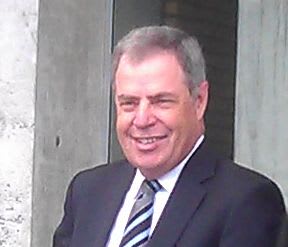The Christchurch City Council is to begin an independent investigation into the actions of chief executive Tony Marryatt and management over its building consents crisis.

Tony Marryatt. Photo: RNZ
The council lost its building consents accreditation on 8 July after problems were discovered with its processes and that some consents had been issued incorrectly. The Government has appointed a Crown manager who will be in place at the council by 15 July to help sort out the problems and remain until December 2014 at the latest.
On Wednesday, the council met with its lawyers at an extraordinary meeting lasting over four hours to discuss Mr Marryatt's future. He was sent home on leave last week.
The meeting was closed to the public and followed comments made last week by mayor Bob Parker, a long-time supporter of Tony Marryatt. Mr Parker publicly laid some of the blame at his door, saying Mr Marryatt withheld important information from him and the council over the building consents issue.
The council will meet again on Monday after which the inquiry's terms of reference will be announced, along with who will be carrying it out.
An employment lawyer and director of I R Thompson Associates, Robert Thompson, said earlier on Wednesday if Mr Marryatt is told to leave the council, he would have a good personal grievance case because of those comments by Bob Parker.
Wider Earthquake Community Action Network spokesperson Mike Coleman told Radio New Zealand's Morning Report programme that Mr Marryatt needs to take a small golden handshake and step aside. He said Mr Marryatt should acknowledge the failures under his watch including the consents debacle and assets not being insured.
Controversial figure
Tony Marryatt has been a controversial figure in Christchurch politics. His $70,000 pay rise in 2011 sparked protests, with hundreds of people taking to the city streets.
The following year, Mr Marryatt agreed to halt the pay rise - although by that time he had already been paid $26,000.
It also emerged last year that Mr Marryatt had sent a letter of personal grievance to the council, which was settled in his favour. His legal costs were paid, but he received no payout.

